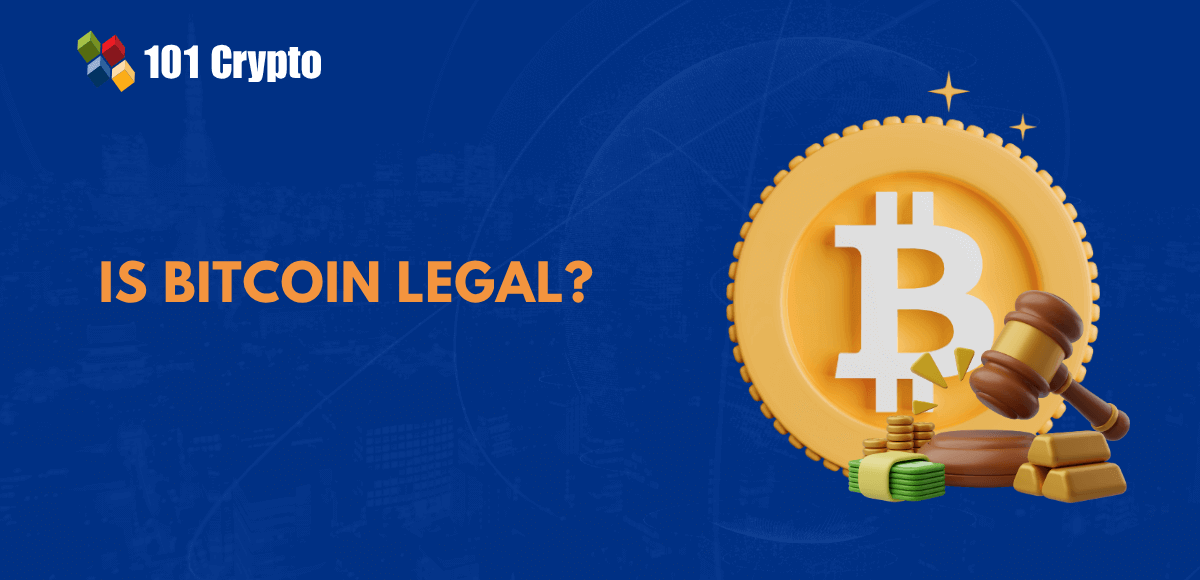The emergence of the Bitcoin cryptocurrency has transformed the traditional global financial landscape. Even though cryptocurrencies such as bitcoins are in their nascent stage, they hold immense promise and potential. As the popularity of bitcoins is gradually rising, one important question is being raised, i.e., ‘Is investing in Bitcoin safe?’ In order to know about the legality and safety of bitcoins, it is fundamental to look at bitcoin regulations.
One must bear in mind that in spite of the growing use of bitcoins to buy and sell goods and services, the regulatory landscape remains underdeveloped. This is because of the fact that there exist no consistent international laws relating to digital currencies such as bitcoins. It is time to explore how the global landscape of cryptocurrency regulations is evolving currently.
Enroll now in the Bitcoin Fundamentals Free Course to gain deep insights on how the Bitcoin blockchain works.
An Insight into Cryptocurrency Regulations
The approach of nations towards cryptocurrencies has been diverse in nature. There are several nations across the globe that are embracing cryptocurrencies such as bitcoins. In fact, there exist numerous countries where cryptocurrency is legal, such as the United States of America, Canada, and El Salvador.
However, there also exist nations that are adopting a cautious approach in relation to cryptocurrencies. This raises an important question – Is bitcoin legal? Although the question seems pretty straightforward, its answer is not that simple. In order to know whether Bitcoin is legal or not, one has to take a look at the existing cryptocurrency regulatory environment.
Cryptocurrency regulations refer to the laws and policies developed by national governments and regulatory policies. These regulations play a key role in governing the use, exchange as well as taxation aspects of these digital currencies. The growing popularity of cryptocurrencies such as bitcoins has undoubtedly created an urgent need for robust cryptocurrency and bitcoin regulations. The chief objectives of cryptocurrency regulations are:
- Preventing financial crimes such as terrorist financing and money laundering that involve cryptocurrencies.
- Safeguarding investors as well as consumers from market manipulation and fraud.
- Maintaining stability and integrity of financial systems.
- Encouraging innovation and curbing risks associated with digital assets.
Top Trends in Crypto Regulatory Landscape
In recent years, several trends have been observed in the cryptography regulatory setting. It is essential to understand these trends to answer the question of whether “is bitcoin legal” or not. By understanding these trends, you can gain insight into the evolving crypto space.
-
Unified International Standards
In the year 2025, a number of nations are shifting towards harmonizing cryptocurrency regulations and legislation. The main purpose is to address the issues relating to cross-border bottlenecks and challenges. This trend has the potential to boost collaboration at the global level.
-
Emphasis on Stablecoins
Recently, the focus has been laid on stablecoins, which are pegged to fiat currencies. Numerous nations are making it mandatory for issuers to register with appropriate financial authorities. The purpose is to maintain proper transparency in the financial landscape.
-
Focus on Consumer Protection
Robust measures are being introduced in order to protect consumers. For example, anti-fraud mechanisms have come into existence to promote stricter protection. Similarly, priority is being laid on mandatory disclosures in order to curb risks for consumers. In case you are wondering – ‘Is investing in Bitcoin safe?’ The trend is certainly a good sign for you.
-
Compliance relating to Reporting as well as Taxation
Tax authorities all across the globe are introducing new frameworks for tracking transactions involving cryptocurrencies. The intention is to collect taxes and ensure compliance.
Regulations in North America
Numerous countries across North America are introducing diverse regulations for regulating cryptocurrencies. In the United States of America, the U. S. Securities and Exchange Commission has introduced clear definitions of cryptocurrencies. Federal agencies in the nation are collaborating in order to streamline compliance in the crypto space. California has been playing a major role in embracing cryptocurrencies by developing a solid regulatory environment.
Canada is another nation that is welcoming cryptocurrencies such as bitcoins with open arms. Through regulations, it has been fostering innovation while prioritizing consumer protection. An important regulatory requirement is licensing; for crypto service providers, licensing has become mandatory in the nation.
Regulations in the European Union
Are you wondering – Is Bitcoin legal in the European Union? The answer is bitcoin and other digital currencies are generally legal in the region. Although these currencies are not seen as legal tender, they are considered to be crypto assets.
The introduction of a number of regulations showcases the growing acceptance as well as adoption of cryptocurrencies. An important regulation is the Markets in Crypto-assets (MiCA) regulation. The framework intends to standardize regulations across diverse members of the European Union. It lays a high emphasis on environmental sustainability along with transparency.
The United Kingdom, which is no longer a part of the European Union, adopted a hybrid approach towards cryptocurrencies. It strikes a balance between innovation and compliance. A high emphasis is laid on anti-monetary laundering as well as KYC compliance requirements.
Regulatory Landscape in Asia
The regulatory environment in Asia is very diverse in nature. This is because of the fact that different countries have adopted varying regulatory stances. China is a nation that continues to ban cryptocurrencies. The nation has taken this step with the intention to curb financial crime and ensure economic stability. So, China is certainly not among the countries where cryptocurrency is legal.
Japan, on the other hand, is undoubtedly a crypto-friendly country in Asia. This is because it has introduced several progressive regulations relating to cryptocurrencies. In case you are wondering, is bitcoin legal in Japan? The answer is yes. Under the Payment Services Act, cryptocurrencies are a type of legal property in the nation. Thus, you can definitely find Japan in the Bitcoin legal countries list.
However, in India, the cryptocurrency regulatory setting is slowly developing. Recently, the Indian government has imposed a tax on crypto gains. The stance on cryptocurrency has been mostly neutral in the nation.
Regulations in the Middle East
The United Arab Emirates has introduced progressive cryptocurrency regulations. Abu Dhabi and Dubai have been playing a prominent role, and they are certainly among the chief hubs of cryptocurrencies. Due to the existence of a crypto-friendly environment, several crypto firms have come into existence in the nation. The Dubai Virtual Asset Regulatory Authority (VARA) has been playing a major role in streamlining the regulatory landscape in the region.
The approach that has been adopted by Saudi Arabia towards cryptocurrencies has been quite slow and cautious. It has not yet been recognized as an official tender in the nation. However, at the same time, there is no prohibition on its use as well. The regulatory landscape is underdeveloped in the Middle East country.
Challenges in the Regulation of Cryptocurrencies
While looking at the regulatory environment relating to cryptocurrencies, it is essential to take into account the challenges and complications that exist. The main challenges that act as an impediment in the regulatory setting include:
-
Striking a balance between innovation and oversight
One of the main challenges revolves around balancing innovation in the crypto space and maintaining oversight. The creation of stringent regulations may stifle innovation. On the other hand, lenient regulations may lead to the misuse of cryptocurrencies by criminals and other non-state actors.
-
Coordination at the cross-border level
Another serious challenge revolves around the need for proper coordination at the international level. As cryptocurrencies exist at the global level, the existence of inconsistent regulations gives rise to loopholes and gaps.
-
Technological advancement
Although technological advancement is a good thing, it increases complexity in the cryptocurrency regulatory setting. Due to the rapidly evolving nature of technology, regulations need to be constantly updated. It becomes a major challenge in the slow-paced crypto regulatory landscape.
These are some of the major challenges that need to be addressed to strengthen the existing crypto regulatory setting. Only by addressing these challenges is there an opportunity to expand the Bitcoin legal countries list at the global level.
Final Words
The cryptocurrency regulatory landscape is evolving all across the globe. The introduction and implementation of new kinds of regulations and policies in diverse nations have the potential to impact the legality of Bitcoin and other digital currencies. As the regulatory landscape is constantly undergoing change, it is essential to keep an eye on the latest legislation and rules. Several nations have introduced progressive regulations highlighting their enthusiasm towards cryptocurrencies such as Bitcoins. Other nations have adopted a slow approach.
In order to boost the adoption of cryptocurrencies, there is a need to focus on consistency in terms of regulation. Through international collaboration, the introduction of uniform regulations can be possible. While several nations have already started to develop robust regulations, there are other countries that are adopting a more careful and gradual approach.
Disclaimer
The article should not be taken as, and is not intended to provide any investment advice. Claims made in this article do not constitute investment advice and should not be taken as such. 101 Crypto shall not be responsible for any loss sustained by any person who relies on this article. Do your own research!







